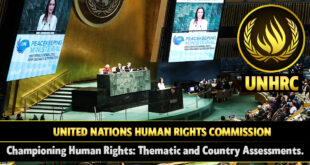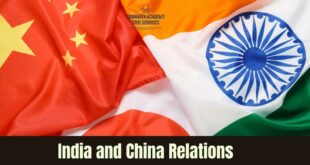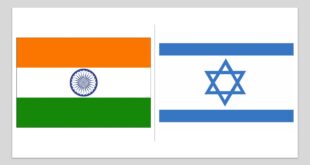- The 32nd Arab League Summit held in Jeddah was unique in multiple ways. After 12 years, all 22 Arab states got together again, with 17 of them represented at the head of state or government level.
- The summit readmitted Syria and heard the Ukrainian President, a special invitee. The post-summit “Jeddah Declaration” was moderate in political optics and showed realism for the contemporary socio-economic challenges facing the Arabs.
- Although it highlighted the staple pro-Palestinian agenda, it conspicuously refrained from mentioning Israel by name.
- Similarly, all Iran-related issues were omitted. Instead, it called for “stopping foreign interference in the domestic affairs of Arab countries and categorically reject all support for the formation of armed groups and militias”. There was no mention of any non-Arab issue, including Ukraine and the oil market.
The Saudi angle
- These subtle nuances would hint at the emergence of Saudi Arabia under Crown Prince Mohammed bin Salman as the main arbiter of the Arab world’s agenda for the foreseeable future.
- During the months of the run-up to this summit, Crown Prince Mohammed bin Salman took several steps to declutter the Kingdom’s regional agenda: he held triple summits in Riyadh with the Chinese President.
- Relations with Iran were normalised, aiming to end nearly 45 years of hostility and geo-religious rivalry. This reduced the friction among their respective proxies in conflict such as Yemen, Lebanon, Syria and Iraq. In particular, it has raised hopes of putting an end to the civil war in Yemen, the Kingdom’s “Vietnam” since 2015. On the other hand, ties with the United States have been stabilised.
- Crown Prince Mohammed bin Salman, 37, has adroitly chalked out a middle path to take the Arab world’s leadership, currently in a vacuum. Egypt, the usual pretender for Arab leadership, is in a precarious economic state as the Kingdom has curtailed its assistance, demanding greater financial accountability.
- Syria and Iraq are still battling their internal demons and Iranian interference.
- By reconciling with Iran through Chinese mediation, but without a U.S. nod-and-wink, Riyadh has asserted its diplomatic autonomy.
- The move seriously undermined Washington’s attempt to demonise Tehran and its nuclear programme and put into question the rationale of its economic sanctions regime.
- Direct ties with Iran have also reduced the importance of Qatar, Iraq, Oman and Pakistan as intermediaries.
- Further, by re-engaging Hamas ruling Gaza, the Kingdom has sought to replace Qatar and Iran as the main benefactor. This should help deradicalise the Palestinians.
- The Kingdom’s instinctive animosity with Israel has been replaced by ambiguity as Riyadh is in no hurry to join the Abraham Accords. In recent weeks, Jeddah has become the venue for peace talks among warring factions in Sudan.
Riyadh’s advantage
- In this ongoing quest for Arab supremacy, Saudi Arabia has the advantage of its economic heft: in 2022, its GDP grew by 8.7% to reach $1,108 billion, more than twice as large as the second-placed United Arab Emirates (UAE).
- Already the world’s largest oil exporter, Saudi oil income grew by 51% to reach a record $228 billion, giving it a sway over both the Organization of the Petroleum Exporting Countries (OPEC) and OPEC+, much to the West’s chagrin.
- With the global oil market facing high volatility, only Saudi Aramco, the world’s largest oil company, has adequate spare capacity.
- As the global economic turmoil raises the costs of post-crisis regional reconstruction, Riyadh is emerging as the first go-to destination.
- However, the Kingdom’s rapid ascendance to the pinnacle of the Arab world also faces several challenges.
- First, the Kingdom’s foreign policy has been through several lurches since the Jamal Khashoggi episode in 2018 and greater maturity and consistency would be needed to make it more effective.
- Second, the various initiatives towards regional reconciliation have not yet become irreversible and could still unravel. Third, the Kingdom’s ties with the UAE and Qatar are friction-prone and could exacerbate.
- Last but not least, while Saudi Arabia is internally stable, the likely anointment of Crown Prince Mohammed bin Salman as the next Saudi king could be a disruptive and distractive development.
India’s stakes
- India has well-known high stakes in the Arab world, particularly in the neighbouring West Asian region.
- We, therefore, need to acknowledge the importance of this incipient geo-political shift, watch the developments very carefully, realign our strategy accordingly and vigorously pursue our national interests.
- Although we enjoy cordial and substantive ties with Saudi Arabia, these are still below the potential and need periodic upgradation.
- To this end, we could consider several bilateral initiatives. Crown Prince Mohammed bin Salman should be re-invited for the India visit postponed last year; his likely presence at the forthcoming G-20 Summit in New Delhi can be leveraged bilaterally for this purpose.
- Separately, we should synergise the bilateral Strategic Partnership Council at various levels, leverage the potential for energy complementarity, work together more effectively to secure the region, enter a bilateral Comprehensive Economic Partnership Agreement, suggest India-Saudi partnership for building socio-economic infrastructure, both bilaterally and regionally, and raise our participation in various projects under the Kingdom’s ambitious “Vision 2030”.
SOURCE: THE HINDU, THE ECONOMIC TIMES, PIB
 Chinmaya IAS Academy – Current Affairs Chinmaya IAS Academy – Current Affairs
Chinmaya IAS Academy – Current Affairs Chinmaya IAS Academy – Current Affairs



